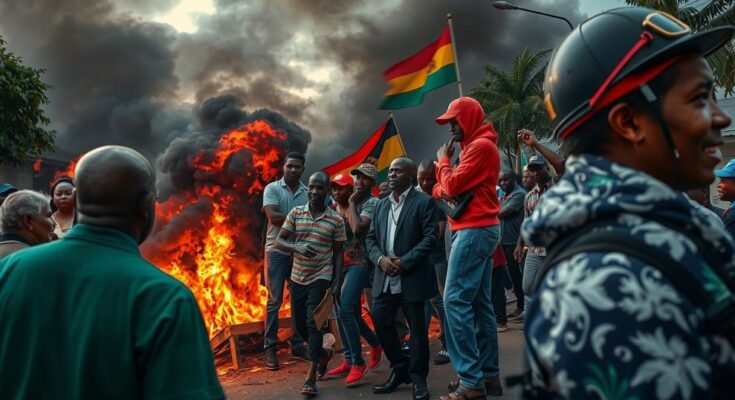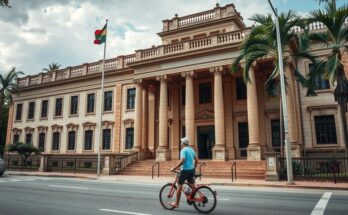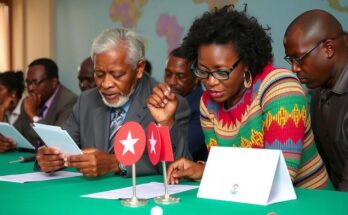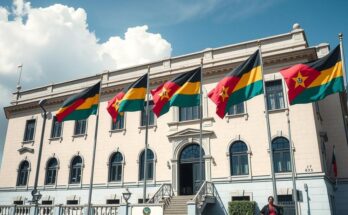Following the controversial election results declaring the Frelimo party the winner, widespread protests in Mozambique have led to violent clashes, resulting in numerous deaths. Opposition candidate Venancio Mondlane has called for continued demonstrations, while the government responds with heavy police presence and internet restrictions. Global human rights organizations have expressed concerns over the handling of protests, emphasizing the need for lawful conduct by authorities.
In Mozambique, significant unrest has erupted following the declaration of the Frelimo party as the winner of the October 9 elections, which have been deeply contested. Tensions have escalated, with protesters taking to the streets against what they perceive as electoral fraud, leading to a heavy police crackdown that has resulted in at least 18 fatalities. The opposition, led by independent candidate Venancio Mondlane, claims the election was manipulated and has initiated calls for prolonged protests against the incumbent government. On Thursday, the capital city of Maputo witnessed a large-scale demonstration, where police deployed tear gas to disperse thousands of citizens rallying against Frelimo’s extended rule. This unrest comes amid warnings from the Mozambique Bar Association about the potential for violent confrontations, as security forces increased their presence throughout the city. Many businesses and educational institutions closed in anticipation of the protests, resulting in a nearly deserted urban environment. The situation has prompted international concern, with Human Rights Watch indicating that the government appears to be restricting internet access to inhibit peaceful protests and dissent. High-ranking officials, including Volker Turk, United Nations High Commissioner for Human Rights, have urged authorities to exercise restraint, adhering to their human rights obligations when managing civil demonstrations, emphasizing the importance of maintaining peace and security in these volatile circumstances.
The political climate in Mozambique has been unstable due to claims of electoral malpractice during the recent general elections. The Frelimo party, which has been in power for 49 years, faces accusations of unfair practices and altering vote counts, particularly from young voters and civil rights organizations. The perceived legitimacy of the elections has led to widespread demonstrations against the government, highlighting a growing discontent among the populace. This series of events underscores the fragility of democracy in Mozambique and the urgent calls for reform from opposition factions and civil society activists.
The recent clashes in Mozambique illustrate a pivotal moment in the nation’s political landscape, as citizens express their dissent against long-standing governance by the Frelimo party. With opposition leaders calling for continued protests and civil rights groups raising concerns about state violence, the situation remains precarious. The international community’s attention will be crucial in addressing human rights abuses and facilitating a peaceful resolution to the ongoing unrest.
Original Source: www.aljazeera.com




